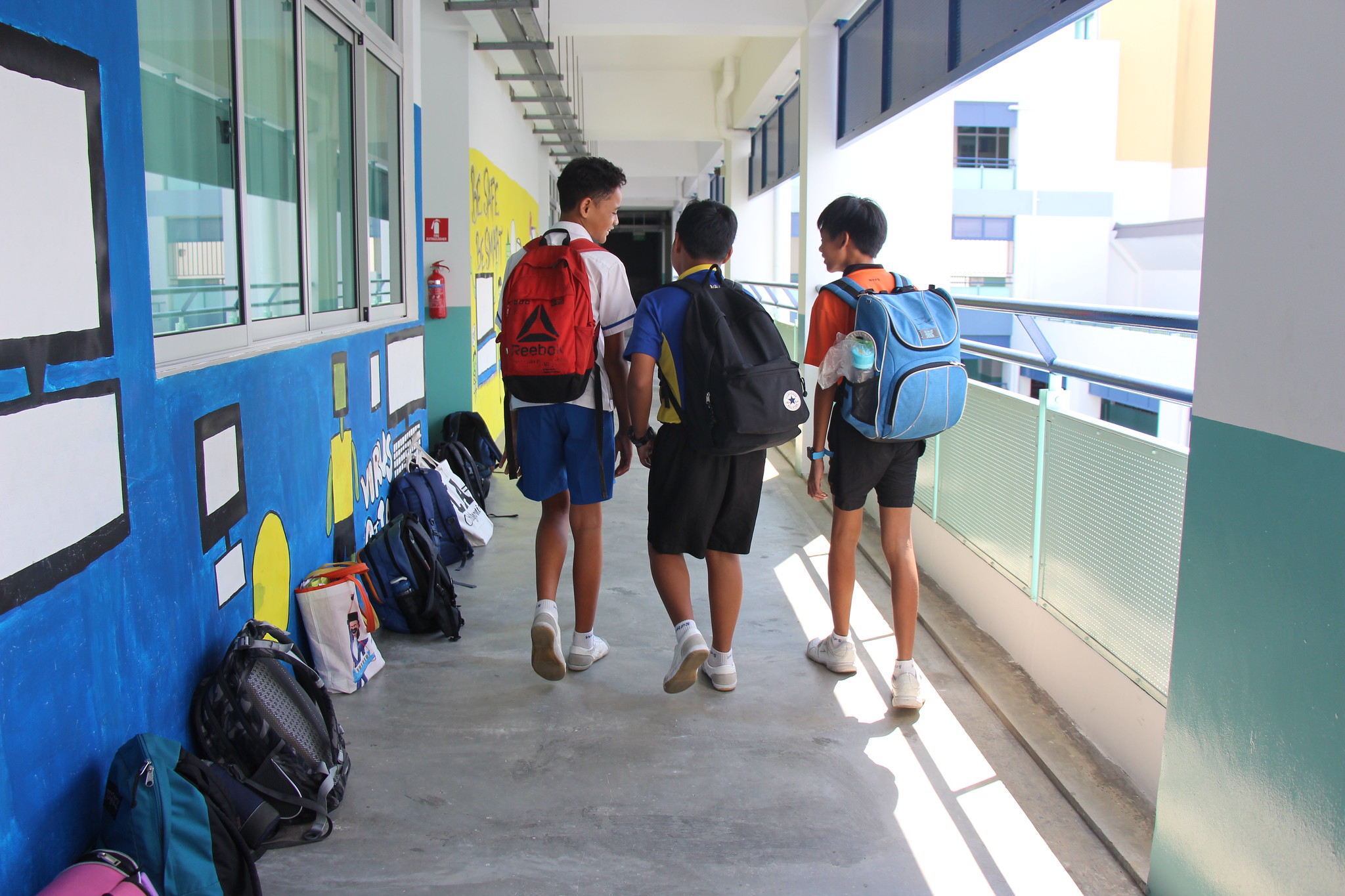How’s your son coping?
13 Mar 2020

Mum Tee Hun Ching has been hearing this a lot since her son started secondary school this year. And while her son has had little trouble adjusting to secondary school life, she is having a harder time as her teen clamours for more leeway than she is prepared to give.
Just before he went to bed recently, my son told me, in a by-the-way manner, that he would be heading over to a classmate’s place after school the next day. Then he left my room before I could respond to the unexpected news. The friend’s name did not ring a bell. Plus, it was the start of another hectic school week, not quite the time to unwind yet.
I trailed after him, peppering him with questions along the way. ‘Why are you going?’ ‘Where does your friend live?’ ‘Who else is going?’ ‘How will you make your way back?’
His answers were terse and unhelpful.
‘Going for fun’. ‘Not sure.’ ‘Maybe three other friends.’ ‘Don’t know yet.’
I told him he couldn’t go, since he couldn’t furnish me with even the most basic details.
He promised to get me the answers I wanted, and did so.
I relented eventually after we agreed on a few things, including what time he was expected to be home. Then I thought, not for the first time, that this new phase in our relationship sure was tricky to navigate.
Entering a new season
Since my son started Secondary 1 this year, a common question from friends and relatives has been: “How is he coping?”
He is coping just fine, actually. Sure, he gripes now and then about the longer school days and what seems like an endless cycle of homework and projects. And he is sometimes too drained to talk when he gets home after the long bus commute. But he perks up when we find time to chat about the friends he has made, some of the learning activities in school and his favourite canteen stalls.
I, however, am having a harder time adjusting to the new dynamics.
It seems like after the calendar flipped over to 2020, he morphed into a full-fledged teen overnight and began demanding – and expecting – a lot more freedom and autonomy than I was prepared to grant him.
Outside of school hours, I can no longer say with certainty where my 12-year-old is at all times. His social circle has expanded, as has his comfort zone. Sometimes, I find out only post-event that he had gone out with friends or tried out a new (and much longer) bus route home.
I am happy that he is growing in confidence and chalking up new experiences. We’ve entered a different season and I accept that parents are no longer welcome as chaperones or chauffeurs, especially when he hangs out with friends. But granting him age-appropriate freedoms while still setting clear boundaries is proving to be a delicate balancing act.
The battle over homework
The area of schoolwork is where I’ve been struggling with the most in this tug of war.
His school assigns each student an email account and he has to log in daily to check on homework assigned via the Google Classroom app.
While I used to check on his progress by reviewing his pen-and-paper assignments every week, much of his school work is now being done online, on a platform to which I have no access.
It was a culture shock, and I tried to assume some control initially by asking to check his email and even look over some of his assignments before he hit the “submit” button.
He, of course, baulked at the idea.
I was anxious about his ability to cope now that the stakes are higher and the workload heavier. Given his laid-back attitude, I was afraid that he would miss or, worse, ignore crucial deadlines and instructions. He in turn was annoyed with my perceived interference.
The battle of wills went on until I hit upon a practical solution. I got a wall calendar for his room with big enough squares so he could note down all his deadlines and test dates. The idea is that he learns to keep track of his workload while I get an overview of what’s on his plate.
One term in, this is still a work in progress. He sometimes forgets or simply can’t be bothered to update the calendar, then gets impatient when I check in on him. I’ve made it clear that I will use the results of his tests and projects this term as a gauge of whether to demand greater accountability from him or trust him to stay on top of things.
Giving our teens room to fail
Thankfully, his school has been doing a good job of helping us parents make sense of the new normal by sending out a weekly update on recent and upcoming news and events. There is enough vital information to keep us in the loop, but also suggestions to check with our boys if we want more details.
In all their communication with the students, teachers and school leaders address them as “gentlemen” – a term that is both an acknowledgement of their growing maturity and a reminder that more is now expected of them.
Our children, not us, are now the main point of contact on school matters and encouraged to take ownership of their learning journeys, if not their lives.
At a briefing for parents early in the year, school officials advised us to give our children room – room to learn, grow and, most importantly, to fail. For it is only when they stumble that they can learn from their mistakes and grow from the experience. And this is the golden window for them to fall and learn to pick themselves up without having to pay too high a price.
Julie Lythcott-Haims, the former dean of freshmen at Stanford University who wrote the 2015 book, How to Raise an Adult, put it bluntly: “As paradoxical as it may sound, our job as parents is, like it or not, to put ourselves out of a job.”
The adolescent years call for a reboot of our parenting approach: We should monitor but not meddle; be caring and not controlling.
It sure is hard to strike the right balance. But I’m learning – and stumbling – as I go along, just as my son is as he finds his own place in the world.
Tee Hun Ching, a mother of two, is a copy editor and a former editor with The Straits Times.
|
For more tips on getting on your You can You might |

.jpg)
.jpg)
.jpg)
.jpg)
